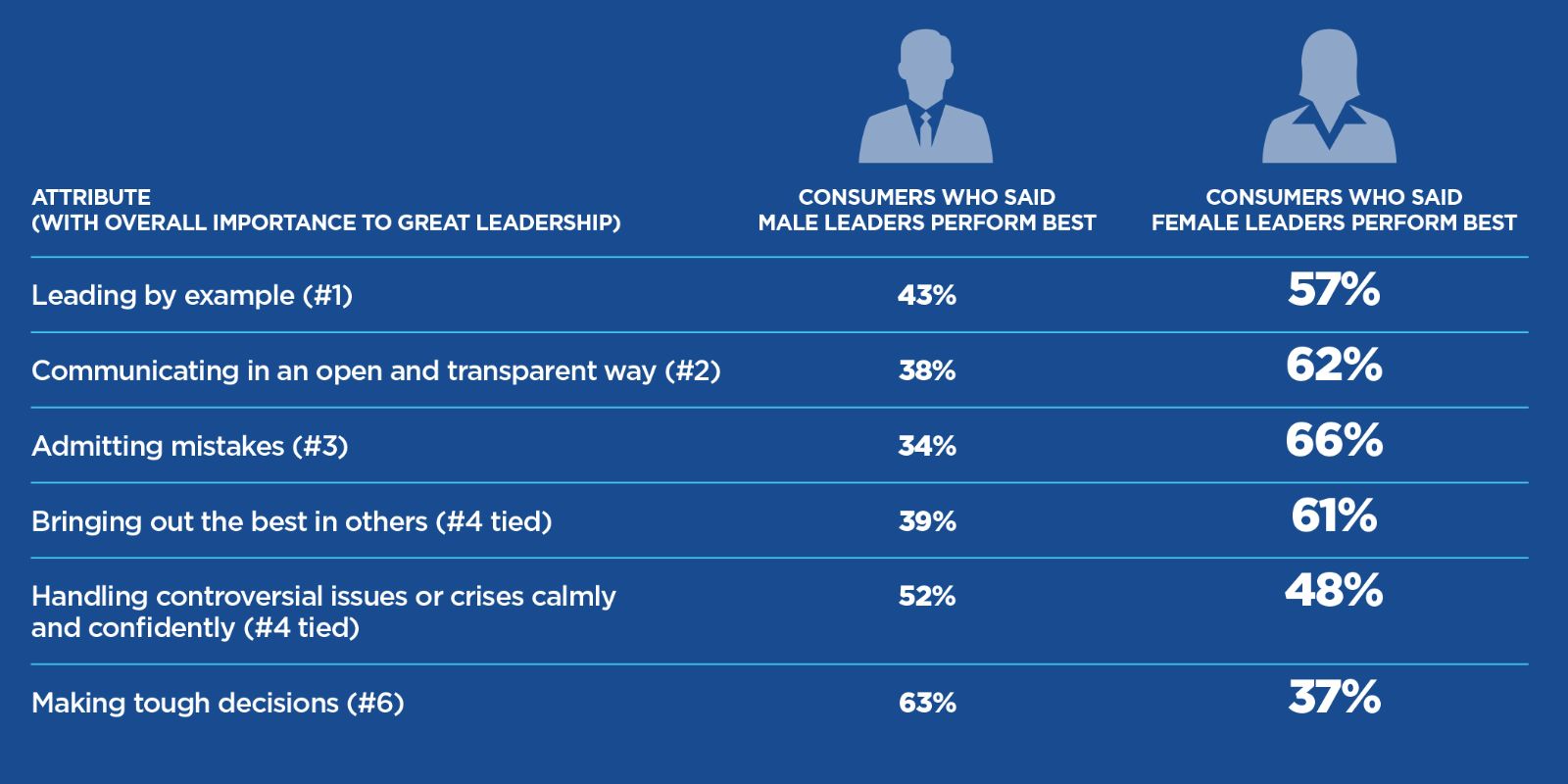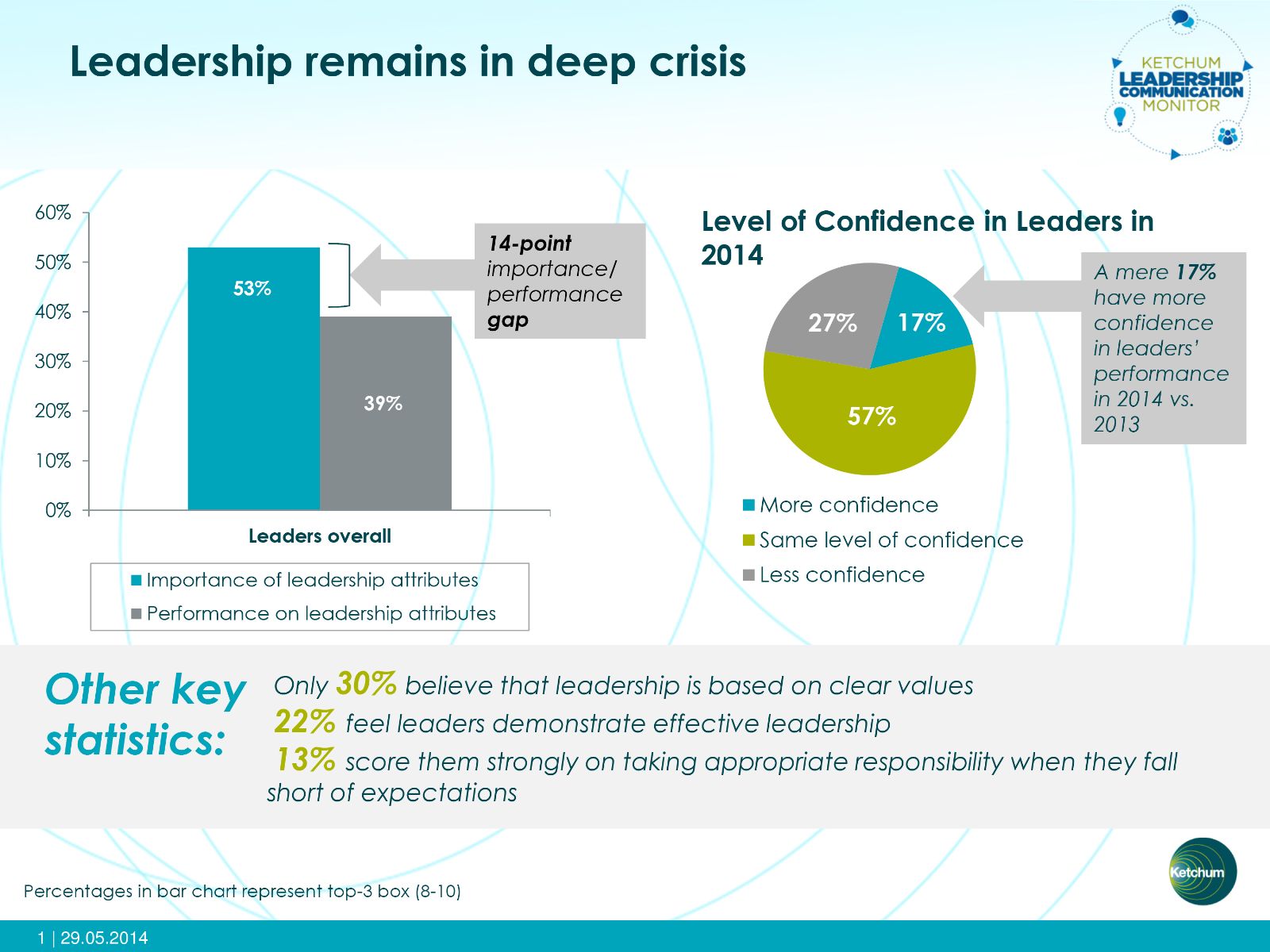The future of leadership communication should be more “feminine”.
According to research by PR firm Ketchum, presented in its latest annual Leadership Communication Monitor, women leaders perform better than men on nearly all the key attributes identified by the research as being crucial to effective leadership and are winning in five of the top-seven key drivers.

The top four traits of effective leadership – on which women score markedly higher – are:
1. Leading by example (57 per cent scored women higher, 43 per cent scored men higher).
2. Communicating in an open and transparent way (62 per cent scored women higher, 38 per cent scored men higher).
3. Admitting mistakes (66 per cent scored women higher, 34 per cent scored men higher).
4. Bringing out the best in others (61 per cent scored women higher, 39 per cent scored men higher).
Discussing these findings, Rod Cartwright, partner and director, global corporate and public affairs practice at Ketchum says: “This is not to say that all future leaders should be women and that men have no place in leadership. Rather, our findings reveal vitally important lessons for leaders of both genders, as they continue to grapple with the ongoing leadership crisis.”

Two other key findings from the monitor are:
- Business leaders are again the most admired type of leader, but still only 29 per cent believing they lead well. Political leaders continue to come in last on every measure with 70 per cent feeling political leaders have fallen short of expectations.
- Europeans lag behind the rest of the world in their view of leaders, with only 22 per cent of Europeans feeling their leaders are effective communicators, 15 per cent viewing them as effective leaders and a mere seven per cent believing those leaders take appropriate responsibility.
These findings highlight, says Cartwright, “the extent to which the public feels royally let down by its leaders, with few, if any, signs of light at the end of the tunnel.”
Cartwright adds: “Our respondents proved to be every bit as despondent as in previous years – if not more so. After all, if your next performance appraisal revealed that just over one in five of your colleagues respected your leadership; a trace over one in 10 thought you took appropriate responsibility when things went wrong; and not even 20 per cent anticipated an improvement, your career prospects would hardly be sparkling. And yet that is precisely the verdict passed by those we talked to around the world on those they are meant to follow. More than a little worrying, to say the least.”
Highlighting the considerable opportunity and responsibility for the public relations function, he notes, "Our study clearly shows that to inspire trust, leaders of both genders need to avoid a ‘macho,’ command-and-control approach to leadership communication. Instead, we are seeing the birth of a new model of leadership communication based on transparency, collaboration, genuine dialogue, clear values and the alignment of words and deeds – a model being followed far more consistently by female leaders."
Methodology
Ketchum Global Research & Analytics and IPSOS fielded a 15-18 minute online survey of 6,509 total respondents in 13 markets from 10th to 31st January 2014. The respondents were weighted for age and gender to accurately represent the general population of each country. Globally, 52 per cent of respondents were male and 48 per cent were female.
PRmoment Leaders
PRmoment Leaders is our new subscription-based learning programme and community, built by PRmoment specifically for the next generation of PR and communications leaders to learn, network, and lead.
PRmoment LeadersIf you enjoyed this article, sign up for free to our twice weekly editorial alert.
We have six email alerts in total - covering ESG, internal comms, PR jobs and events. Enter your email address below to find out more:









